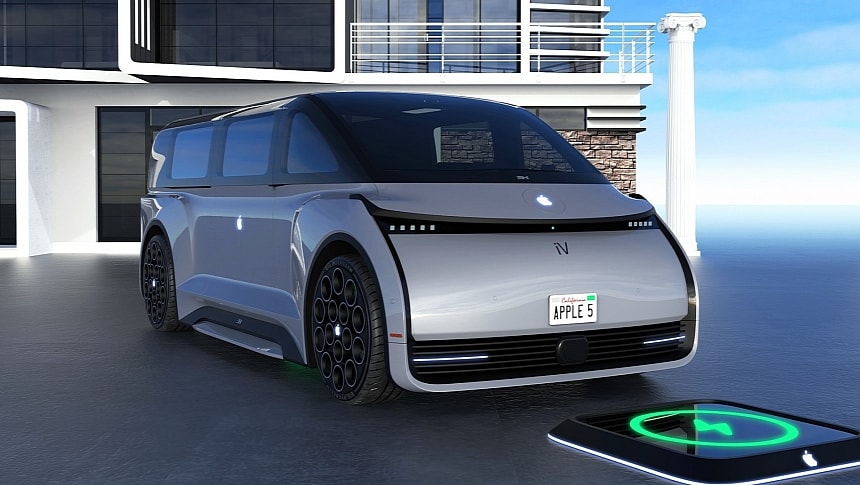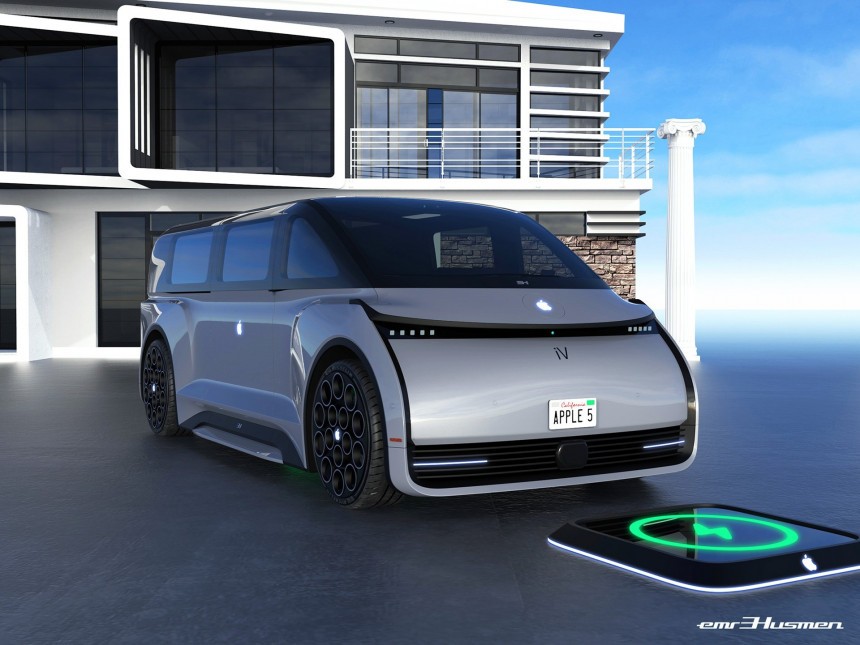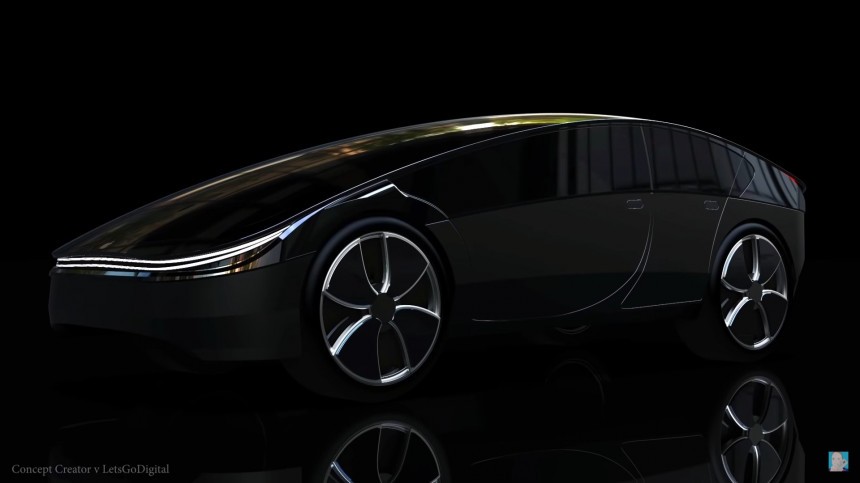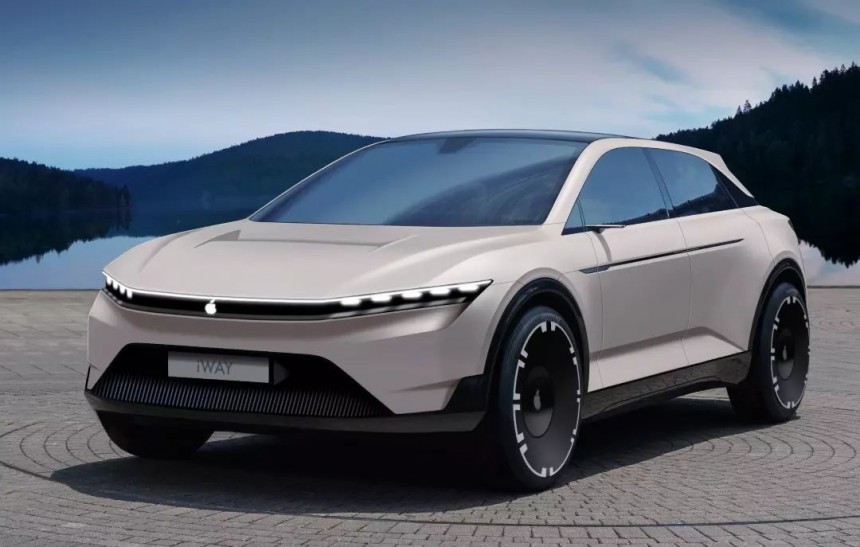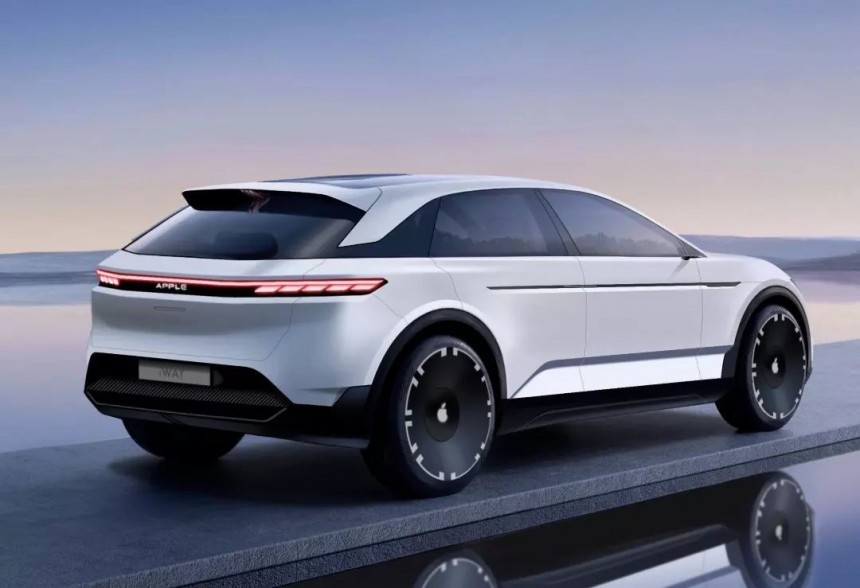We've known for a while that Apple wanted to build a car, and we've also known for at least a couple of weeks that this project failed.
Apple has never publicly talked about the Apple Car, so theoretically, we can't call the vehicle an Apple flop or a failure. However, a new report provides us with a closer look at what happened behind the closed doors at Apple's headquarters from the moment Steve Jobs dreamed about building an Apple Car to the one where it all bit the dust.
Let's start with how Steve Jobs believed a car would fit Apple's long-term strategy.
In 2008, when the world was already approaching a massive recession that put American carmakers on their knees, Steve Jobs came up with an idea that took many by surprise. Jobs believed Apple needed a car, and to make it possible, he thought that buying a car manufacturer was the easiest option. He even considered taking over General Motors, the then-trouble carmaker that struggled with the recession.
Jobs believed Apple could have purchased GM for pennies on the dollar, especially due to the economic downturn.
The Apple co-founder didn't just envision a strategy involving an Apple car. He discussed the plan with other executives, including Tony Fadell, best known for the iPod, how an Apple-branded vehicle would look. His plan was to build "this generation's new Volkswagen Beetle" – an iconic model whose legacy would survive for decades.
Eventually, Jobs decided to abandon the idea, especially as the work on the iPhone was still in the early phases. Apple directed most of its resources to the smartphone, making the iPhone the global superstar it is today.
Project Titan came to life in 2014 when Tim Cook, Steve Jobs' successor at the helm of the company, believed an Apple Car would have made sense. The initial plan was to build a Level 5 autonomous driving system – a vehicle that wouldn't even come with a steering wheel and pedals, as it takes you wherever you want to go on its own. The idea was extremely ambitious, especially because in 2014, autonomous driving systems were still in early development phases, and not even EVs gained traction.
Apple's executives knew this was a crazy idea that no other carmaker would have come up with. Because human interaction wasn't needed – but it would have been required per regulations, Apple believed a human driver would have been able to take over control using a controller similar to the one used by a Sony PlayStation or an iPhone application.
Apple didn't always want to build an Apple Car alone. The company contacted several carmakers to discuss a potential collaboration, including Hyundai. The South Korean carmaker initially agreed to become a contract manufacturer for the tech giant, but Apple abruptly ended the talks. People familiar with the matter said that Apple's leadership team did not agree with Hyundai publicly spilling the beans on the negotiations.
Today's report reveals that Mercedes was the closest to building the Apple Car. The Cupertino-based tech giant wanted to work with Mercedes on an electric vehicle, and while the talks reached an advanced phase, the negotiations between the two ended when Apple did not agree to let Mercedes use its self-driving platform.
Mercedes agreed to build the Apple Car but also wanted access to the self-driving platform for its own models. The iPhone maker dropped the talks, believing they had the resources and supply chain to handle the product from the ground up.
Apple also discussed the project with Ford, at one point even exploring a different strategy to make the Apple Car a Lincoln model. However, the talks between the two ended fast.
Apple was also interested in taking over an automaker and using its resources and know-how to build the Apple Car. The company was involved in talks with McLaren, and even chief designer Jony Ive backed the takeover, planning to move to London specifically to develop the Apple Car with McLaren's employees.
The iPhone maker wanted the Apple Car to start a revolution in the automotive world, imagining ambitious features, such as a gigantic screen, reclining seats, and a premium audio system to turn the cabin into a party.
However, the project gradually lost traction, and several engineers who worked on the car expressed frustration with the vehicle not hitting the streets faster. Some jumped ship and left the company, while others eventually convinced the leadership team that the development wasn't going in the right direction.
Kevin Lynch is the one who hit the final nail in Apple Car's coffin. He met with the leadership team earlier this year, explaining that getting a vehicle ready would take one more decade. Tim Cook wasn't very excited to hear that an Apple Car wouldn't launch earlier than 2030, and considering he was already disappointed with the progress made in the last few years, he decided to drop it entirely.
It's believed Apple spent over $10 billion on the failed project, with the company now trying to use the technology for other products, including its AI projects.
Let's start with how Steve Jobs believed a car would fit Apple's long-term strategy.
In 2008, when the world was already approaching a massive recession that put American carmakers on their knees, Steve Jobs came up with an idea that took many by surprise. Jobs believed Apple needed a car, and to make it possible, he thought that buying a car manufacturer was the easiest option. He even considered taking over General Motors, the then-trouble carmaker that struggled with the recession.
The Apple co-founder didn't just envision a strategy involving an Apple car. He discussed the plan with other executives, including Tony Fadell, best known for the iPod, how an Apple-branded vehicle would look. His plan was to build "this generation's new Volkswagen Beetle" – an iconic model whose legacy would survive for decades.
Eventually, Jobs decided to abandon the idea, especially as the work on the iPhone was still in the early phases. Apple directed most of its resources to the smartphone, making the iPhone the global superstar it is today.
Apple's executives knew this was a crazy idea that no other carmaker would have come up with. Because human interaction wasn't needed – but it would have been required per regulations, Apple believed a human driver would have been able to take over control using a controller similar to the one used by a Sony PlayStation or an iPhone application.
Apple didn't always want to build an Apple Car alone. The company contacted several carmakers to discuss a potential collaboration, including Hyundai. The South Korean carmaker initially agreed to become a contract manufacturer for the tech giant, but Apple abruptly ended the talks. People familiar with the matter said that Apple's leadership team did not agree with Hyundai publicly spilling the beans on the negotiations.
Today's report reveals that Mercedes was the closest to building the Apple Car. The Cupertino-based tech giant wanted to work with Mercedes on an electric vehicle, and while the talks reached an advanced phase, the negotiations between the two ended when Apple did not agree to let Mercedes use its self-driving platform.
Apple also discussed the project with Ford, at one point even exploring a different strategy to make the Apple Car a Lincoln model. However, the talks between the two ended fast.
Apple was also interested in taking over an automaker and using its resources and know-how to build the Apple Car. The company was involved in talks with McLaren, and even chief designer Jony Ive backed the takeover, planning to move to London specifically to develop the Apple Car with McLaren's employees.
The iPhone maker wanted the Apple Car to start a revolution in the automotive world, imagining ambitious features, such as a gigantic screen, reclining seats, and a premium audio system to turn the cabin into a party.
Kevin Lynch is the one who hit the final nail in Apple Car's coffin. He met with the leadership team earlier this year, explaining that getting a vehicle ready would take one more decade. Tim Cook wasn't very excited to hear that an Apple Car wouldn't launch earlier than 2030, and considering he was already disappointed with the progress made in the last few years, he decided to drop it entirely.
It's believed Apple spent over $10 billion on the failed project, with the company now trying to use the technology for other products, including its AI projects.
